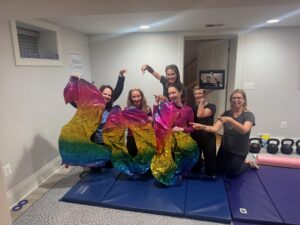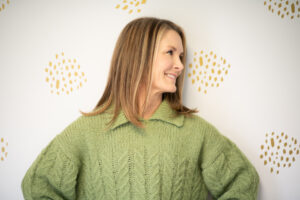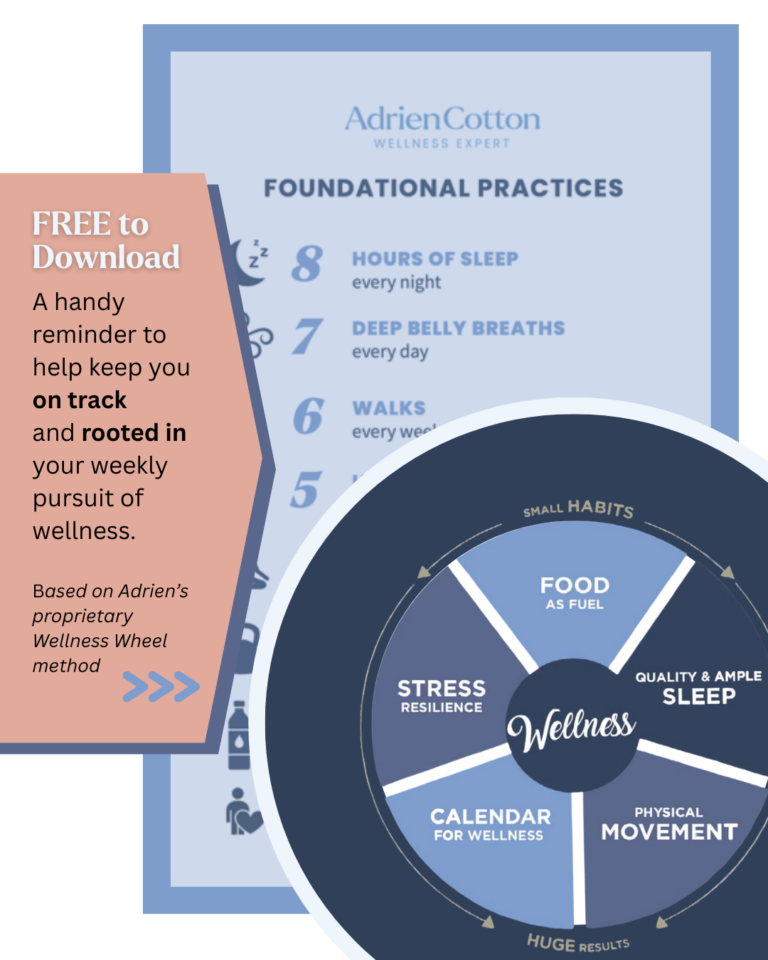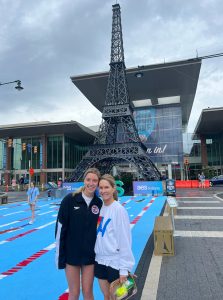
My daughter Rachel, a competitive swimmer, and I had a ball marveling at the prowess of Olympian Regan Smith breaking the world record in 100 Backstroke at the US Olympic Swimming trials this year in Indianapolis. Regan set a goal in January to break the world record when she was quite sick with mononucleosis, and despite the setbacks of her illness, she accomplished it.
What was sort of a “random mom act” turned out to be one of our best trips, inspirational to both Rachel and me. Sitting there, watching these women break barriers and records, made me think of the inner athlete in us all. Even if we’re not Olympians, we all can – and should – consider ourselves athletes. We are ALL athletes in life. While our playing field may look like a desk or a driver’s seat, we need our bodies to be strong and able to handle anything that comes our way.
Unfortunately, what I have found disheartening during my career as a fitness and wellness expert is the lack of research regarding fitness and the female body. Instead of studying the effects of intense training on the female body at different stages of life, the results of male-dominated studies are randomly applied to women. It’s time to change that!
What is known about estrogen, the hormone most abundant in a woman’s body during her reproductive years, is that it affects not just the reproductive system, but also the muscles, bones, heart, and brain. Estrogen helps regulate brain function, bone mass, muscle mass, blood sugar levels and circulation, and even cholesterol.
Knowing estrogen impacts so many areas of the female body, it’s time to learn its effect on female health and fitness, including athletes in perimenopause and menopause. What has been documented is that about half of elite female athletes experience amenorrhea (lack of a period) or oligomenorrhea (irregular periods). Many also reach perimenopause about three years earlier than the general population. Because of this, some female athletes may not know they are in perimenopause or menopause and may not attribute the symptoms they are experiencing to the onset of these hormonal changes.
Understanding how elite training is affected by fluctuating estrogen levels can help female athletes and coaches train in a way that supports the health and vitality of the female body – and those lessons can be applied to us non-Olympians, too. Creating individualized training and nutritional support programs for female athletes can help prevent injury, improve recovery time, and boost athletic performance. Adaptations, like targeted cardiovascular training and strength training, can help prevent bone loss during menopause and improve body composition when things begin to change during perimenopause. Core strengthening during perimenopause is also super important for all women. Maintaining a strong core not only helps with stability and balance but also supports the pelvic floor muscles that can become weak as we age.
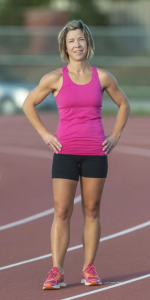 What I find most remarkable about female athleticism during midlife isn’t just that it’s possible—it’s essential to our wellness. As a 57-year-old woman, I feel limitless in my athletic pursuits. How about you?
What I find most remarkable about female athleticism during midlife isn’t just that it’s possible—it’s essential to our wellness. As a 57-year-old woman, I feel limitless in my athletic pursuits. How about you?
Consider this: a Canadian study found that retired elite female athletes had significantly lower rates of anxiety and depression compared to the general population. Despite the inevitable injuries from their careers, their overall health was markedly better than other women their age.
What truly struck me was that the majority of these athletes said they would compete again if given the chance. Take Olympic swimmer Gabrielle Rose, for example. After an impressive swimming career with two Olympic appearances, she continued to push herself in the sport, achieving her personal best swim time 24 years after her last Olympic appearance. At the trials, she shared, “I feel like a different person. I’m a mom, I have other things going on, a different perspective on life, appreciating it, and having more fun than ever.”
That’s exactly what I envision for all of us in midlife—fun! These years should be filled with vitality and joy, not retreating from life but embracing it and reaching for athletic goals we once only dreamed of.
If you need inspiration on how to thrive during midlife, I’d love to show you how in my new holistic wellness program: Exercise, Food, Sleep, & Stress Relief for Women: 8 Weeks of Wellness with Adrien Cotton
In this virtual 8-week program, we’ll focus on one topic each week, offering you community and accountability while you navigate your wellness journey. Want to learn more? Sign up to receive Early Access to the course, Exclusive Updates about course content, and Special Discounts.

